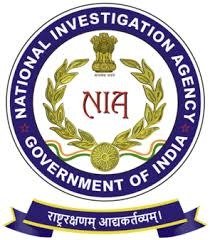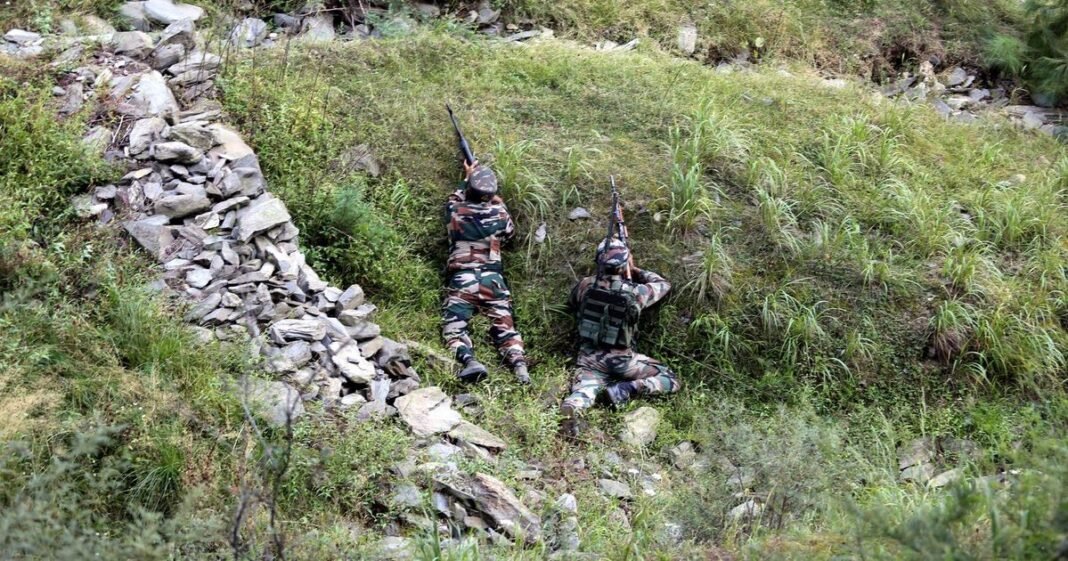By Brig Brijesh Pandey (Retd)
General Syed Asim Munir, the Pakistani Army Chief recently addressed the overseas Pakistani convention in Islamabad focusing on few key issues such as Two Nation Theory (TNT), Kashmir Issue and Pakistan’s National Identity as an Islamic State.
This expression of overt religiosity by an Army Chief, reinforces the assertions that Pakistan is a radical Islamist country, far beyond simply being an Islamic State.
More than the implications for India i.e., Bharat, it indicates the dire state in which Pakistan Army is in. Socio-politically fragmented, militarily facing quaternary stretch (Afghanistan or TTP in KPK, Baluchistan, PoJK and India) as well as fissures between fissures within the ranks, economic collapse, geo-strategic isolation, and so on.
It was a desperate attempt by the General who has no control over anything, not even his cognition and speech. In this piece the focus will be on the TNT, which in terms of current acronym as well as the explosive acronym sense, divided India at the time of independence and continues to do so even after over seven and a half decades.
What is TNT?
TNT was an idea that Hindus and Muslims in the sub-continent are two distinct nations with separate religious (Islam and Hinduism) identities, cultural practices shaped by their past, social structures, economic interests and political aspirations. The main proponents of this ideology were Sir Syed Ahmed Khan, Allama Iqbal and Mohammad Ali Jinnah. This theory boosted the individual ambitions of Jawahar Lal Nehru and Mohammad Ali Jinnah to become Prime Ministers, and was exploited by the Britishers to achieve their strategic goal of retaining control over the territory of utmost strategic value ie Pakistan occupied Jammu & Kashmir (PoJK), Pakistan occupied Gilgit Baltistan (PoGB), Khyber Pakhtunkhwa (KPK) and Baluchistan. Except for few, there was no strategic thinking and understanding among the leaders because during the struggle for freedom, they had not focused on geo-strategy or geography.
As a result, we allowed these regions to slip out of our hands. Point to be noted is, Pakistan was not created for Sindis, Punjabis, Baluch and Pathans, but for Muslims, only to secure their identity, dignity and pride. It was very strongly propounded that owing to these differences, these two communities cannot co-exist within a common territorial boundary. Despite such a strong belief, only 40% Muslims chose to become part of Pakistan. It is not that all of the balance 60% did not believe in TNT, there was a large segment that believed in it yet stayed back due to their physical and material compulsions.
Difference used to Create two Outlooks?
In religious terms, it was propagated that Islam preaches Tawaheed (oneness of Allah) and believes in equality of man before law. Muslims are the believers of the God, the Holy Prophet, (PBUH) and the Holy Book Quran and hold a cohesive approach towards life. Hinduism, on the other hand is based on the concept of multiple Gods and their society follows a caste system having four main castes, and a very narrow approach to life. Another aspect was Hindu Nationalism. A number of Hindu nationalist movements which emerged from time to time added fuel to fire (or were exploited for causing a divide among two communities) multiplying the existing antagonism. The third factor was cultural differences. Muslim followed the Islamic culture whereas Hindus inherited a self-built culture. Key aspects such as burial versus cremation of the dead, the ‘Mother Cow’, ‘sati’, etc contrasted sharply, and Hindus and Muslims would neither intermarry nor inter-dine.
The fourth key aspect was that of social differences, wherein the clothes, the foods, the household utensils, the layout of homes, the words of salutation, the gestures, etc were different from each other and pointed to the distinctive origin. The fifth difference was economic interests which erupted post Mutiny of 1857 whereby all the trade policies were re-oriented in favour of Hindus. The sixth component of differences was political differences such as Hindi-Urdu controversy, Attitude of Congress, Partition of Bengal, etc.
How did Pakistan Fare in Islamic Values?
This idea of TNT was flawed from the start as only fewer Muslims accepted it and acted upon it, otherwise all Muslims would have migrated to Pakistan in 1947. Moreover, since Islamic identity of Pakistan was merely based on political needs, Pakistan never valued the principles such as ‘oneness of Allah’ or ‘equality of man before law.’ The ideology, kept getting re interpreted as per the political needs or exigencies. During the military rule of Zial-ul-Haq, even the concepts of warfare were conveniently interpreted (read ‘Quranic Concepts of Warfare’ by Brig SK Malik, retired) to exploit religiosity for sustaining his military rule. In the larger context, Islamist or Jihadi ideologies were crafted by Islamic preachers to affect radicalization of members of organizations such as Muslim Brothers (Egypt), Islamic Group (Egypt), Al Qaida, Al Jihad (Egypt), Islamic Salvation Army (Algeria).
Large number of books, research papers and documents were created and published with interpretation of basic facets of Islam, merely to justify violence. Soon after 9/11 terrorist attacks on twin trade towers of America, when the pressure mounted on Islamist groups and they were forced to de-radicalize, another set of interpretations boomeranged, justifying peaceful co-existence with non-Muslims, acceptance of democratic governance, and so on. Hence, it was the political expediency or convenience that decided the interpretation as well as the nature of compliance with the principles.
During three different periods of military rule, first under Ayub Khan & Yahya Khan, the second under Zia-ul-Haq and third under Pervez Musharraf, Islam got different types of treatment in which Generals refrained from adopting open support to Islam. This was perhaps due to the fact that Army and the Generals had some amount of professionalism in them and they did not want to leave the legacy of fundamentalism within Army. Hence, ill 1970s, they all covertly used religion and fundamentalism to gain or consolidate their powers. Post 1971, Pakistan adopted terror as an instrument of state policy and sponsored terrorism.
Since initially it was in support of US efforts in Afghanistan, Pakistan Army stopped mincing its words with regards to its support for terrorism. The instant expression of General Asim Munir that Muslims of Pakistan are “different from Hindus in every possible aspect of life. Our religion is different. Our customs are different. Our traditions are different. Our thoughts are different. Our ambitions are different. Tell this to your children so that they never forget the story of Pakistan” is manifestation of fear emerging from Army losing its respect in society, Army being kinetically and non-kinetically boldly confronted, wide of issues developing within rank and file and Army loosing even the residual impression of being a professional force. Munir is losing its grip as a Chief and influence within the country. Earlier Chiefs could avert crisis because of American covert and/or over support, better economy due to terror funds and deep connections of ISI. Over a period of time, these pillars of strength have vanished.
What should be India’s Response?
Firstly, TNT continues to divide the mindsets of large section of Muslims even today. As in 1940s, this ideology is still being politically exploited by various political outfits. Even the leadership of Muslims is playing in the hands of various political parties and not realising the longterm impact of such divides. Resultant sentiments are also misused for fuelling terrorism and separatism.
Secondly, when a quasi-military dictator like Asim Munir or autocratic ruler like Xi Jinping, come under stress due to threat to their position, their behaviour is guided by the survival or existential instincts. They are not rational or concerned about the sufferings caused to people or implications for the country. Their egos often pierce through the roofs of sanity and they become unpredictable. They tend to believe that only external threat or war with another country can restore their position, and they can do whatever it takes – conventionally or unconventionally.
Hence, while India need not worry about the threats, it must definitely be fully prepared to handle any crisis. Indian Armed Forces must take measures towards Force Availability, Force Composition, Quick Mobilization, Force Structuring, Force Balancing, and above all, the ability to extract quick pollical decision.
While government under leadership of Mr Modi has exhibited political will to act decisively against the enemies abroad and within, the onus equally lies on our military leadership to enable quick political decision making.
THE WRITER OF THIS ARTICLE: BRIG BRIJESH PANDEY (Retd) IS AN ARMY VETERN WHO PIONEERED THE INCEPTION AND GROWTH OF INFORMATION WARFARE AND SERVED IN J&K FOR OVER 15 YEARS.

Geostrategic Analyst




